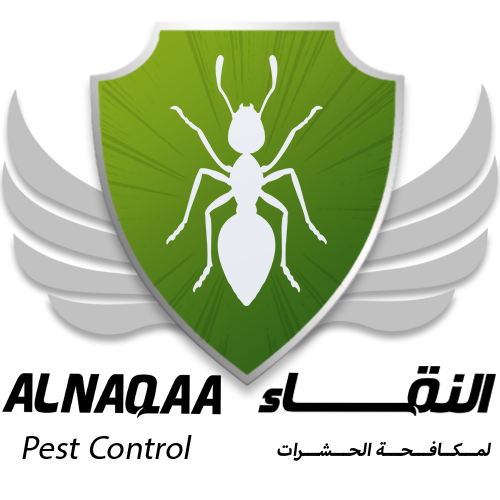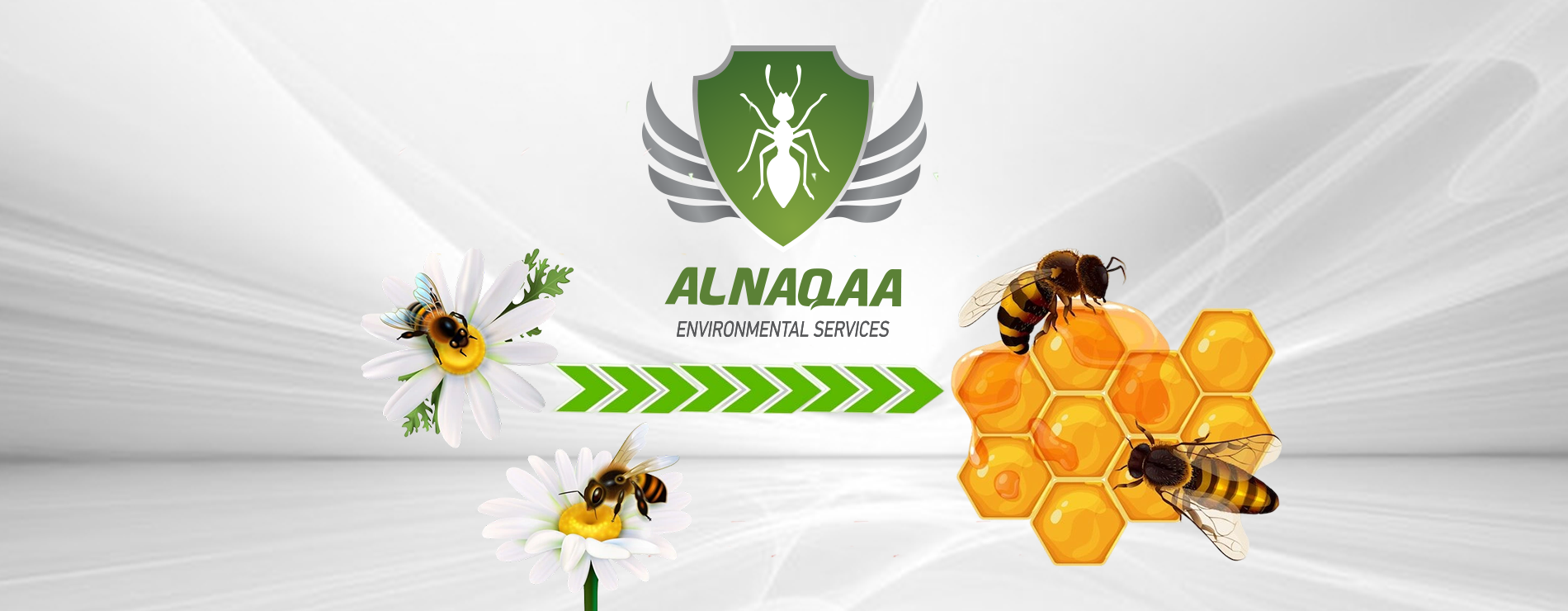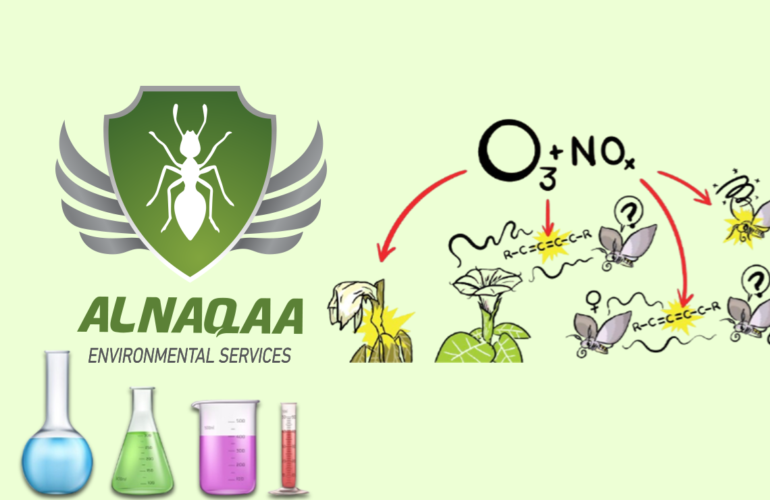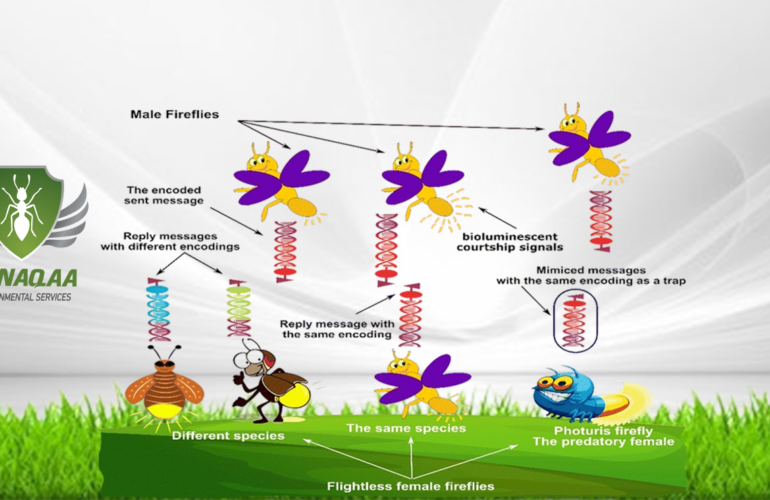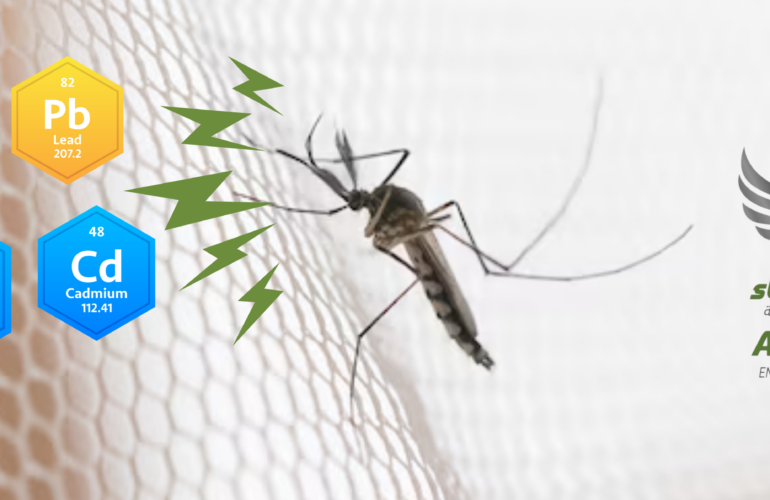Insect Intelligence
Even though they are frequently regarded as little creatures, insects have extraordinary intelligence that never ceases to astonish experts. These organisms have outstanding learning capacities, sophisticated behaviors, and tiny brains despite their complexity. Alnaqaa for Environmental Services and Pest Control, Ras Al-Khaima, United Arab Emirates will help you understand the fascinating field of insect intelligence, examining illustrative cases, exploring various applications, and emphasizing how insect intelligence might transform pest management techniques.
The astounding cognitive skills displayed by insects defy our preconceived beliefs about their intelligence. Here are a few noteworthy instances:
1. Honeybees – Dance Language: Honeybees use a complex dance language to convey the location of food sources. Bees can properly navigate and locate resources for their hive members by completing particular maneuvers that convey information about the quality, quantity, and direction of food.
2. Ants – Collective Decision-Making Ant colonies exhibit the ability to make decisions collectively. Ants coordinate their actions when searching for food or moving their nests through chemical signals and pheromone trails. In response to shifting conditions, they allocate duties, optimize routes, and modify their techniques.
3. Wasps – Cognitive Mapping: By building mental maps of their surroundings, several wasp species display impressive navigational abilities. Even after roaming vast lands, they can return to their nests with accuracy because they can recall important landmarks and minute aspects of their surroundings.
Applications of Insect Intelligence: Different fields have benefited from using insects’ distinctive cognitive skills. Here are a few noteworthy instances:
1. Robotics and artificial intelligence: To create robotic systems that can mimic the intelligence of insects, researchers are inspired by their behavior. Studying insect cognition helps search-and-rescue operations, swarm robotics, and autonomous drones that navigate challenging situations.
2. Algorithms for optimization: Complex optimization issues have been solved using insect-inspired methods like ant colony optimization and particle swarm optimization. These algorithms enable effective solutions in fields like logistics, network routing, and resource allocation by simulating the collective behavior of ants or swarms.
3. Agriculture and Pollination: Improving agricultural techniques requires an understanding of the intelligence of pollinators, such as bees and butterflies. Scientists can improve crop pollination, create sustainable farming techniques, and slow the loss of pollinator numbers by researching their foraging behavior and navigational techniques.
Insect Intelligence in Pest Management: By utilizing insect intelligence, pest management methods can be revolutionized, resulting in cost- and resource-efficient fixes. This is how:
1. Bio-Inspired Traps: Researchers can create traps that take advantage of the natural tendencies of pests by studying their behavior and sensory capacities. For instance, to attract and capture pests, pheromone-based traps imitate the chemical signals sent by insects, minimizing the need for hazardous chemicals.
2. Pest Detection and Monitoring: It is possible to use insects’ capacity to recognize and react to environmental cues for pest monitoring. Early infestations can be detected using sensors that pick up on particular insect behaviors or chemical signals, allowing for targeted responses and limiting widespread harm.
3. Biological Control: The development of biological control techniques can be aided by insect intelligence. It is possible to use beneficial insects to manage pest populations, such as specific parasitoids or predators. By maximizing their use and assuring effective pest management with the least amount of ecological impact, it is possible to better understand the intelligence of these natural enemies.
4. Swarm robotics for pest control: Swarm robotics, which takes cues from insect swarm behavior, shows promise in eradicating pests. Miniature robots that behave like social insects can work together to identify, track, and get rid of pests in a focused and effective way.
The fascinating topic of insect intelligence research is still revealing the amazing cognitive powers of these little organisms. Insects exhibit an astounding variety of sophisticated activities, from the intricate dance language of honeybees to the group decision-making of ant colonies. Furthermore, our comprehension of insect intelligence has opened the door for ground-breaking developments in a variety of fields, including robotics, optimization, and agriculture. We can create sophisticated pest management methods that are not only successful but also environmentally responsible, encouraging a peaceful coexistence between humans and insects, by utilizing the intelligence of insects.
To learn more about insect intelligence and how it might be used in pest management, consider the following points:
1. Cognitive Flexibility: Insects have a remarkable capacity for adapting their behavior to changing environmental conditions. This trait is essential for surviving in unpredictable situations and offers chances to create adaptable pest control methods. We can improve the efficacy of pest management strategies by comprehending how pests react to various stimuli and changing control tactics accordingly.
2. Chemical Ecology: To navigate their surroundings, interact with conspecifics, and find resources, insects mainly rely on chemical cues. Possibilities for creating cutting-edge pest control methods open up with an understanding of the chemical ecology of pests. For instance, by discovering and creating substances that interfere with pests’ capacity to marry, seek food sources, or establish territories, we might lessen their population increase and negative effects on crops or structures.
3. Integrated Pest Management (IPM): The development and application of Integrated Pest Management systems depend heavily on insect intelligence. IPM employs a variety of techniques, such as cultural, biological, and chemical ones, to efficiently manage pests while reducing their negative effects on the environment. IPM programs can be made more effective and long-lasting by including knowledge of insect behavior, communication, and ecological relationships.
4. Insect-Based Biocontrols: The creation of insect-based biocontrol agents can benefit from knowledge gained from insect intelligence. For instance, certain parasitic wasps can identify and find particular host insects using the chemical cues those hosts generate. Understanding these natural enemies’ sensory processes and behavioral patterns enables us to employ them as biological control agents in the most efficient and targeted ways possible.
Overall, the investigation of insect intelligence offers intriguing prospects for improving pest management methods. We can create more precise, eco-friendly, and sustainable approaches to fight pest infestations while lowering reliance on traditional pesticides and limiting environmental impacts by making use of the cognitive capabilities and behavioral patterns of insects.


